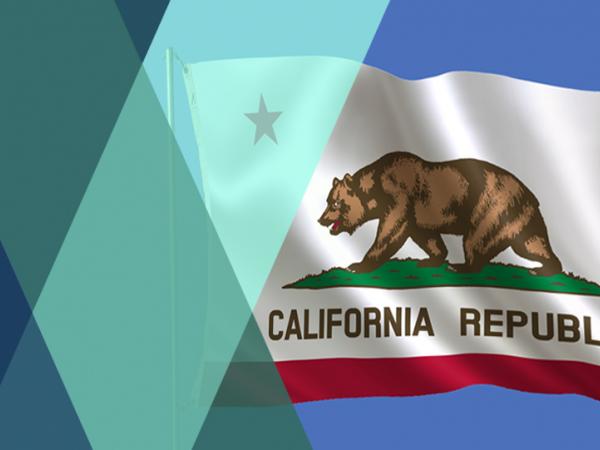
Privacy & Cybersecurity
Viewpoints
Filter by:
The California Consumer Privacy Act – A Brief Guide for Covered Employers
October 29, 2019 | Blog | By Cynthia Larose, Jennifer Rubin
The California Consumer Privacy Act becomes effective on January 1, 2020 with an amendment that impacts California employers. Covered businesses should, of course, already be in the process of preparing CCPA privacy notices and disclosures. And while the amendment carves out some of the direct CCPA provisions applicable to California employers, employee data – and how it is handled – should also be on every covered employers’ to do list.
Read more
Analysis of Attorney General Regulations to CCPA – Part 4: Special Rules Regarding Minors
October 21, 2019 | Blog
The California Attorney General’s CCPA draft regulations impose additional requirements for collection of data from children under 13 on top of those imposed by the federal Children’s Online Privacy Protection Act (COPPA), and also create additional requirements for minors between the ages of 13 and 16. Businesses will need to have reasonable processes in place to ensure that the person providing consent for the sale of a child’s data on his or her behalf is actually their parent or legal guardian. Minors must also be able to opt in, and later, opt out, of the sale of their PI. Businesses should include these practices in their privacy policies.
Read more
Analysis of Attorney General Regulations to CCPA – Part 3: Verification Procedures
October 18, 2019 | Blog
The California Attorney General’s draft regulations specify how businesses verify consumers’ identities when they receive consumers’ data requests. Specifically, Section 999.323 requires a business (i) to verify consumers’ requests by using available data and implementing reasonable security measures, (ii) not to collect new data for verification unless necessary for security purposes, and (iii) to promptly delete newly collected information.
Read more
Analysis of Attorney General Regulations to CCPA – Part 2: Business Practices for Handling Consumer Requests
October 17, 2019 | Blog
Within Article 3 (pages 10-18), the regulations detail important requirements that every business must follow when providing and fulfilling consumer rights under the CCPA.
Read more
Analysis of Attorney General Regulations to the CCPA– Part 1: Notices to Consumers
October 16, 2019 | Blog | By Christopher Buontempo
Article 2 of the California Attorney General’s draft regulations specify certain notices that must be given to consumers at the time of collection of their personal information, including consumers’ rights to opt-out of the sale of their personal information, and notices of financial incentives a business may offer in exchange for consumers’ personal information. Article 2 also provides specific CCPA requirements for company privacy policies.
Read more
Analysis of Attorney General Regulations to the California Consumer Privacy Act – A Series
October 15, 2019 | Blog | By Christopher Buontempo, Cynthia Larose
The California Attorney General’s office (CA AG) has published the long-awaited implementing regulations to the California Consumer Privacy Act (CCPA). In addition to the regulations, the CA AG also released a Notice of Proposed Rulemaking and Initial Statement of Reasons to support the draft regulations. The CA AG will hold a series of public hearings as outlined in the Notice of Proposed Regulations, and will be accepting written comments from the public on the regulations until 5:00 PM PST on December 6, 2019.
Read more
BREAKING NEWS: California AG Issues Draft CCPA Regulations
October 10, 2019 | Blog | By Cynthia Larose
The California Attorney General has issued draft regulations to the California Consumer Privacy Act. View the draft regulations in this post.
Read more
Ruling from Europe’s High Court: “Active” Consent Required for Cookies
October 2, 2019 | Blog | By Cynthia Larose
The Court of Justice of the European Union (CJEU) – the European Union’s equivalent to the US Supreme Court – has issued a very important ruling with respect to cookie compliance that may require re-evaluation of your cookie consent practices if your website is available to EU users. The bottom line: those pre-ticked boxes for “consent” to the use of cookies are not valid means to obtain consent.
Read more
2019 CCPA Amendment Process Comes to a Close
September 20, 2019 | Blog | By Cynthia Larose
Interested parties and privacy professionals have all been anxiously awaiting how legislative activity would shake out before the California Consumer Privacy Act (“CCPA”) is implemented January 1, 2020. Now that the dust has settled inside the golden dome in Sacramento and the state legislature’s 2019 session has come to a close, we can see which bills passed and will be provided to Governor Gavin Newsom, who has until October 13th to either veto these bills or sign them into law.
Read more
Tech CEOs to Congress: Please Pass Federal Privacy Law
September 10, 2019 | Blog | By Cynthia Larose
51 tech company CEOs today signed and sent an open letter to Congress asking for help to hold off and supersede the rising number of state privacy laws growing like weeds. The letter was sent on behalf of the Business Roundtable, a group that has sent its own “Framework for Consumer Privacy Legislation” to Congress as a “jumpstart.”
Read more
California Legislature Working Through Data Privacy Amendments
September 6, 2019 | Blog | By Cynthia Larose
In California's Senate session on September 5, AB 1130 was passed, which amends the state’s data breach notification law. The amendment would include passports, biometric data, and taxpayer and military identification numbers to the definition of “personal information” requiring notice under the breach notification law if breached.
Read more
Facsimiles and Other Fossils: FTC Initiates Review to Update COPPA Rule to Keep Pace with Emerging and Connected Technology
August 26, 2019 | Blog | By Cynthia Larose
Spurred by the rapid evolution of technology, the Federal Trade Commission (“FTC” or “Commission”) decided unanimously to begin a review of the Children’s Online Privacy Protection Act (“COPPA”) Rule. The review could upend compliance plans for many businesses with a digital footprint.
Read more
And the CCPA Amendment Countdown Begins ….
August 13, 2019 | Blog | By Cynthia Larose
The California Legislature has returned from its summer recess and got right to work on the pending amendments to the California Consumer Privacy Act (CCPA). The Legislature has 30 days from today to send any amendments to the Governor’s desk for signature.
Read more
August Cybersecurity Update: Congress Finishes Up NDAA and Continues Work on Cybersecurity Bills
August 12, 2019 | Blog | By Christian Tamotsu Fjeld, Alexander Hecht
As August recess gets underway for the House and the Senate, ML Strategies has prepared a summary of the status of this summer’s key cybersecurity issues. ML Strategies will continue to track these and other cybersecurity priorities before Congress and the Administration through August and beyond.
Read more
But Wait, There’s Less – Equifax Settlement Update
August 2, 2019 | Blog | By Christopher Buontempo, Cynthia Larose
We know we told you yesterday about the Equifax settlement and how you could make a claim in connection with the breach. Well, consumers whose personal information was compromised in Equifax’s massive 2017 data breach are in for another surprise: they may not receive the entire $125 payout option initially offered following Equifax’s settlement agreement with the FTC.
Read more
FTC and Equifax Reach Historic Settlement
July 30, 2019 | Blog | By Christopher Buontempo, Cynthia Larose
According to the FTC, “Despite its failure to implement basic security measures, Equifax’s privacy policy at the time stated that it limited access to consumers’ personal information and implemented “reasonable physical, technical and procedural safeguards” to protect consumer data.”
Read more
California Consumer Privacy Act in a Nutshell
July 23, 2019 | Blog | By Cynthia Larose
According to our CCPA Countdown Clock, we are 161 days and counting to the effective date of the California Consumer Privacy Act. The Mintz Privacy team is deeply involved in working with clients on developing compliance programs and digging into customer data for inventory and mapping exercises. If you’re not already doing that, our handy tip sheet outlines the very top level issues and may help to provide a broad overview.
Read more
Another Chance for HIPAA and Part 2 Harmony?
July 22, 2019 | Blog | By Dianne Bourque
There are reports that HHS plans to issue a proposed rule next month, which would again amend 42 CFR Part 2 (“Part 2”) and modify how the medical records of patients with substance abuse disorders are currently shared between providers. Part 2 amendments, especially amendments to align Part 2 with the Health Insurance Portability and Accountability Act (“HIPAA”), would be welcome news to the many stakeholders in the industry who have repeatedly voiced their concerns regarding the regulatory hurdles that surround the disclosure of drug and alcohol treatment records.
Read more
Are You Talking To A Bot? New CA Law Makes Disclosure the Best Option
July 1, 2019 | Blog | By Cynthia Larose
While the California Consumer Protection Act (“CCPA”) is certainly one of the most important pieces of privacy legislation affecting many businesses today, we want to remind our readers of another California initiative that may affect their operations, which we are calling the “Disclose Your Bots” law.
Read more
Nevada Moves the Goalpost with New Privacy Law
June 7, 2019 | Blog | By Cynthia Larose, Christopher Buontempo
Get ready: October 1, 2019 is the new date for many U.S. businesses to begin providing consumers the right to opt-out of the sale of their personal information. While January 1, 2020 was the date upon which many businesses were prepared to provide notice of consumers’ right to opt-out of the sale of their personal information to comply with California’s Consumer Privacy Act (CCPA), Nevada moved the goalpost last week and signed Nevada Senate Bill 220 (SB-220) into law, which requires many businesses to provide a similar opt-out, and becomes effective on October 1, 2019.
Read more
Explore Other Viewpoints:
- Data Centers & Digital Infrastructure
- AI: The Washington Report
- Antitrust and Federal Regulation
- Appellate
- Arbitration, Mediation & Alternate Dispute Resolution
- Artificial Intelligence
- Awards
- Bankruptcy & Restructuring
- California Land Use
- Cannabis
- Class Action
- Complex Commercial Litigation
- Construction
- Consumer Product Safety
- Corporate Governance (ESG)
- Crisis Management and Strategic Response
- Cross-Border Asset Recovery
- DEI Legal Developments
- Debt Financing
- Direct Investing (M&A)
- Diversity
- EB-5 Financing
- Education & Nonprofits
- Employment
- EnforceMintz
- Environmental (ESG)
- Environmental Enforcement Defense
- Environmental Law
- Environmental, Social, and Corporate Governance (ESG)
- FDA Regulatory
- FDA in Flux
- False Claims Act
- Federal Circuit Appeals
- Financial Institution Litigation
- Government Law
- Growth Equity
- Health Care
- Health Care Compliance, Fraud and Abuse, & Regulatory Counseling
- Health Care Enforcement & Investigations
- Health Care Transactions
- Health Information Privacy & Security
- IP Due Diligence
- IPRs & Other Post Grant Proceedings
- Immigration
- Impacts of a New US Administration
- Insolvency & Creditor Rights Litigation
- Institutional Investor Class Action Recovery
- Insurance & Financial Services
- Insurance Consulting & Risk Management
- Insurance and Reinsurance Problem-Solving & Dispute Resolution
- Intellectual Property
- Investment Funds
- Israel
- Licensing & Technology Transactions
- Life Sciences
- Litigation & Investigations
- M&A Litigation
- ML Strategies
- Managed Care
- Medicare, Medicaid and Commercial Coverage & Reimbursement
- Mergers & Acquisitions
- Patent Litigation
- Patent Prosecution & Strategic Counseling
- Pharmacy Benefits and PBM Contracting
- Portfolio Companies
- Privacy & Cybersecurity
- Private Client
- Private Equity
- Pro Bono
- Probate & Fiduciary Litigation
- Products Liability & Complex Tort
- Projects & Infrastructure
- Public Finance
- Real Estate Litigation
- Real Estate Transactions
- Real Estate, Construction & Infrastructure
- Retail & Consumer Products
- Securities & Capital Markets
- Securities Litigation
- Social (ESG)
- Special Purpose Acquisition Company (SPACs)
- Sports & Entertainment
- State Attorneys General
- Strategic IP Monetization & Licensing
- Sustainable Energy & Infrastructure
- Tax
- Technology
- Technology, Communications & Media
- Technology, Communications & Media Litigation
- Trade Secrets
- Trademark & Copyright
- Trademark Litigation
- Unified Patent Court (UPC)
- Value-Based Care
- Venture Capital & Emerging Companies
- White Collar Defense & Government Investigations
- Women's Health and Technology













